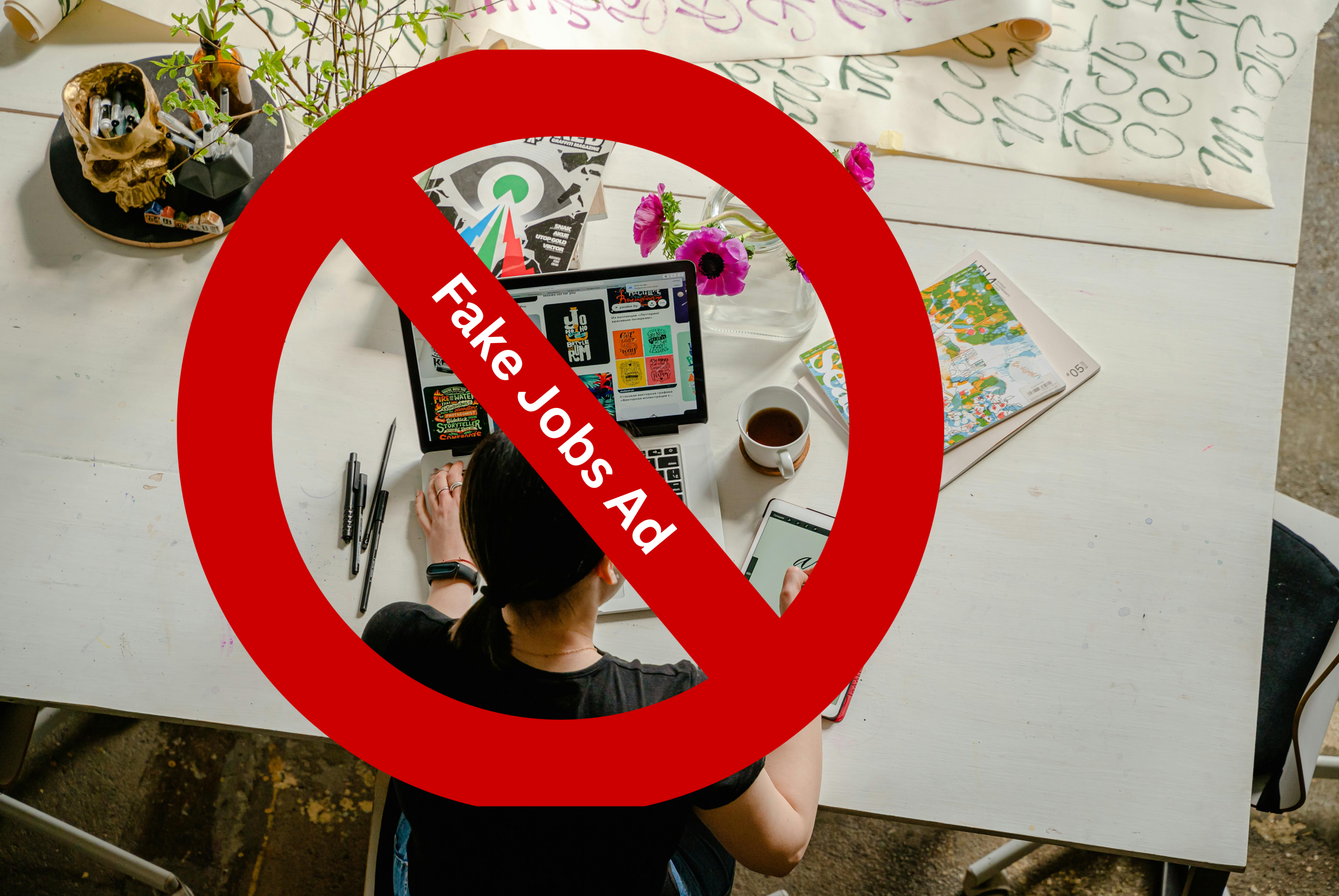Don’t Fall for It: How to Dodge Job Scams Like a Pro
Imagine this. You’re sitting at home, CV updated, heart hopeful. You’ve been applying for jobs nonstop. Then—ding!—a WhatsApp message or email pops up. “We’ve reviewed your resume, and you’re the perfect candidate. Work-from-home. Earn R15,000 a week. No experience needed.”
Your heart skips. Finally, right?
Wait. Stop. Breathe.
Because that, right there, might be a scam.
The Job Scam Boom: Why Is This Happening?
Let’s be real. Jobs are tough to find. Unemployment is high. Remote work is trending. These conditions make it easier for scammers to create fake offers that look very real. Job boards, emails, Facebook posts, WhatsApp messages—even LinkedIn has had its fair share of fake listings.
They use legit-looking logos, urgent tones, and quick promises. And when you’re tired, broke, or desperate—you might not stop to question the details.
That’s what scammers count on.
“You Got the Job!”…Without Even Applying
Some scams start with something that should feel good.
“Congratulations! You’ve been selected for a remote data entry job. No interview needed. Just send your details to HR on WhatsApp.”
Hold up. You didn’t apply. You didn’t interview. They didn’t ask any questions.
Big red flag.
Real employers don’t offer jobs to people they’ve never spoken to. Ever. No serious company skips the application or interview process.
Tactic: Scammers will say your CV was “found online” or that you were “automatically selected.” It’s a lie. It’s bait.
“We Need a Small Fee to Get Started”
This one hurts the most because it sounds so harmless.
“To start work, you must pay a small admin/registration/training/uniform fee. It’s just R150. You’ll be reimbursed with your first salary.”
Nope. Don’t do it.
Never, ever, pay to get a job. Legit employers pay you, not the other way around.
Some scammers will even go so far as to give you a fake company receipt, a reference number, or bank details—just to make it look real.
They’ll say, “We’re an international company, and we need to process your employee ID.” Or “HR needs to activate your profile.”
All lies. Don’t buy into it.
Tactic: Asking for fees upfront for training kits, registration, or background checks.
The Job Description Is Vague (or Too Perfect)
Sometimes a fake job looks like this:
“Work from home. Flexible hours. R5,000 per week. No experience needed. All you need is a phone and internet. Start immediately.”
Sounds amazing, right?
Too amazing.
These scams keep things vague on purpose. No mention of the company name. No clear responsibilities. No proper contact information.
And sometimes, the job seems too perfect. Every benefit. Zero requirements. Just “click here and start today.”
Tactic: Scammers keep things vague so you ask fewer questions. Or, they flood you with benefits to blind you to the missing info.
Strange Interview Proces
Got an interview request—but it’s via Telegram, WhatsApp, or some weird messaging app?
That’s a warning.
Yes, some real companies use Zoom or Teams for interviews. But if someone insists on chatting only via text on an unprofessional platform—question it.
Even worse, some scammers send you a long list of questions via WhatsApp, then say, “Congrats, you’ve passed the interview!”. And boom—there’s the catch. You need to pay for training or onboarding.
Tactic: Fake interviews are used to build trust. Once they feel you’re “invested,” they strike with the payment scam.
You’re Asked for Sensitive Personal Info Too Soon
Real job applications may ask for your ID, references, or proof of qualifications—but not immediately. And definitely not before an interview or formal offer.
Some scams ask for:
- Copy of your ID
- Bank details
- Tax number
- Payslip
- Utility bills
- Signature
And once they have that… Identity theft begins.
Tactic: “We need your info to create your profile.” Don’t hand over personal data until you’re 100% sure it’s a real employer.
Shady Email Addresses and Grammar Issues
Look closely at that email address.
Looks almost real, doesn’t it?
But Google doesn’t use sketchy domains like “.co.za” for international hiring. Scammers mimic big brands using similar domains to trick people.
Also—check the writing style. Is the message full of grammar issues, strange phrases, or robotic wording?
That’s another giveaway.
Tactic: Professional companies use clear communication, branded emails, and real contact information. If it looks off, it probably is.
“Act Now! Limited Slots Available!”
Scammers love urgency.
“We need to fill this job TODAY. First 20 people to reply will get it.”
This is pressure sales.
Real jobs don’t expire in 2 hours.
They don’t tell you to “rush before others take it.” That’s fear marketing. They want you to act without thinking.
They want to short-circuit your logic.
Tactic: Creating a sense of urgency to rush you into decisions—especially payments.
So… What Does a Legit Job Offer Look Like?
Here’s a checklist you can use:
- Job was posted on a verified company site or known platform (like LinkedIn or Indeed)
- There was a proper application and interview process
- Clear job title, duties, and expected hours
- No payments or fees required
- Legit email domain (e.g., hr@companyname.com)
- No pressure or urgency
- You’ve researched the company and found consistent info
- They didn’t ask for sensitive personal info too soon
If it checks all the boxes, you’re probably in the clear.
But if anything feels off—pause and investigate.
How to Protect Yourself
Here’s your survival kit:
Google everything – Company name + “scam” or “reviews.” Fake jobs often get exposed online.
Use official websites – Apply only through official company sites or verified job boards.
Call the company – Get their official contact from Google and ask if the job exists.
Screenshot suspicious messages—keep records in case you want to report it.
Block and report – If someone asks for money, ghost them. Then report to authorities.
Where to Report Job Scams in South Africa
- SAFPS (South African Fraud Prevention Services): www.safps.org.za
- Cybercrime Unit (SAPS): Report online or visit your nearest station
- Job platform: Report fake ads on LinkedIn, Facebook, Indeed, etc.
- Consumer Protection Services in your province
You can also warn others on social media or review sites. Your post might save someone.
One Last Story
Sipho, a 23-year-old graduate from Limpopo, thought he had landed a dream job—data entry, R9,000/month, remote. They asked for R100 “for training material.” He sent it.
Then they asked for R250 “for account setup.” He paid again.
And then… they disappeared.
He later found out the company never existed.
He’s not alone. But he’s learned.
“Now, I double-check everything,” he says. “If they ask for money, I’m out. I warn everyone I can.”
Final Thoughts
Scammers are evolving. Their messages look real. Their promises sound sweet.
But you? You’re smarter now.
Trust your gut. Ask questions. Don’t rush.
And if anything smells fishy—walk away.
Because the right job won’t make you pay. It won’t ask you to act blindly. And it definitely won’t be hiding behind a WhatsApp message at 11pm.
You deserve a real job. Not a scam.






